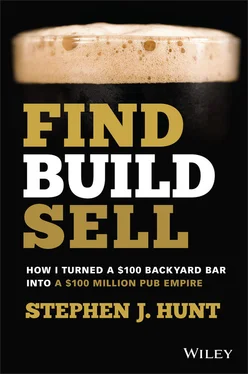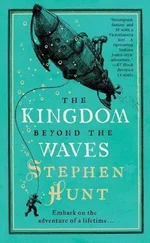I've been doing it since I launched my backyard bar and I've been in the industry ever since. I don't know it all, but I know what it takes to succeed. Fortunately, my passion for pubs connects with my ability to turn a profit, but it's worth remembering this: it's one thing to have a passion for a business idea. It's quite another to make it profitable, and just because you like something doesn't mean you can make money from it. You might enjoy making pottery, but it doesn't mean you should build a business around it. Do you like the business of selling pottery, or do you just like making pottery? It's an important distinction to make because not everything you love is commercially viable. There's a lot that goes into running a business, much of which you may not like, be good at or know how to do. So you need to ask yourself some questions to find a passion that you can cash in on.
5 questions to ask yourself when choosing a business idea
1 Is what you love relevant to other people? Do people love what you have? I happen to love pubs, and people love pubs, so it's a good match. People need to want what you have.
2 Will the customer pay you for what you have? What problem do you solve? You'll get paid if you help people solve their problem. In my world, people will always pay for a pint, a parma, a punt or a party.
3 If everyone else is already doing it, can you do it differently? Beware of unwarranted optimism — that is, believing that just because you offer it, people will come. You need to have a clear point of difference and the ability to communicate that to a market who value that difference.
4 Can you find a customer? You don't need hundreds of customers to validate your business idea. You need one. The minute someone pays you for what you have (at market rates) you have a business idea worth exploring.
5 Is it profitable? Selling it for a fee is one thing. Making a profit is another. If it costs so much to make it that you can't make a profit, you need to find a cheaper way to make it or find a different business model.
If you don't want to lose money (like I nearly did) by making a poor decision, think carefully before you buy or launch a business. I didn't, and I nearly lost my entire life's savings. Fortunately, I was able to turn it around, but many can't, or don't, and what starts out as exciting can quickly become overwhelming or downright terrifying. Don't let this happen to you.
BEWARE OF UNWARRANTED OPTIMISM
Hope is not a marketing strategy. Neither is optimism, especially when it's unwarranted.
Knowing how to assess an opportunity is key, and doing your due diligence is the secret to getting that assessment right. Even if you're totally besotted with an opportunity, you need to look at it through an objective lens, and see if from all points of view, to see if the deal stacks up. Being prepared to walk away from it is also critical. It takes a lot of guts for the head to overrule the heart, but when it comes to buying and investing, there's no room for emotion.
For example, there's a coffee shop on a corner near me. It's the third coffee shop in two years to take a lease at that location. The previous two went out of business. From what I can see, this one will too because it's exactly the same as the two that went before it. The name is different, the décor is different and the people are different, but for all intents and purposes, it's a coffee shop just like the others. So, you have to ask the question: if the other two failed, why do these new owners think they will succeed?
I can tell you why: it's because the new owners have an unwarranted optimism about their likelihood of success — a misplaced sense of enthusiasm that, this time, it'll be different — because they think they are better operators, better coffee makers or just … better. I hope they are, but I doubt it.
This excitement at ‘what could be' obfuscates the reality of ‘what is'. They ignore the obvious warning signs about what could go wrong. In this case, the café has no atmosphere, no parking and no foot traffic. I hope for their sake this time something will be different.
The easiest way to determine what you should build, or buy, a business around is by asking these three questions:
What do I love doing?
Do people need it?
Will people pay for it?
Find the overlap in those three questions and you've found the business to pursue.
1 Don't count your chickens before they hatch.
2 Don't get cocky.
3 If someone says ‘no' to an investment, ask if they know of anyone who could be interested.
4 Get your accountant and lawyer to look over all contracts before you sign anything.
5 Don't confuse your passion for making something with your ability to sell it or market it.
6 Beware of unwarranted optimism. Do your due diligence before you buy a business or invest in one.
Конец ознакомительного фрагмента.
Текст предоставлен ООО «ЛитРес».
Прочитайте эту книгу целиком, купив полную легальную версию на ЛитРес.
Безопасно оплатить книгу можно банковской картой Visa, MasterCard, Maestro, со счета мобильного телефона, с платежного терминала, в салоне МТС или Связной, через PayPal, WebMoney, Яндекс.Деньги, QIWI Кошелек, бонусными картами или другим удобным Вам способом.












